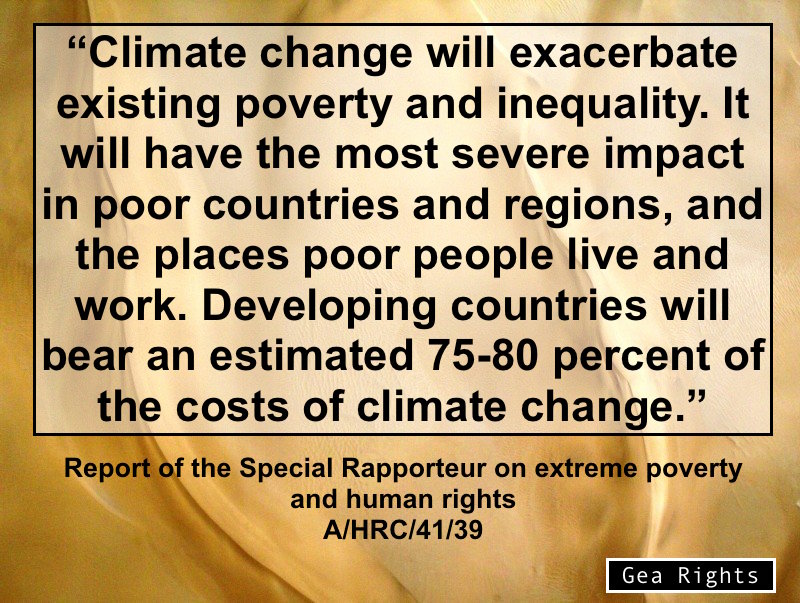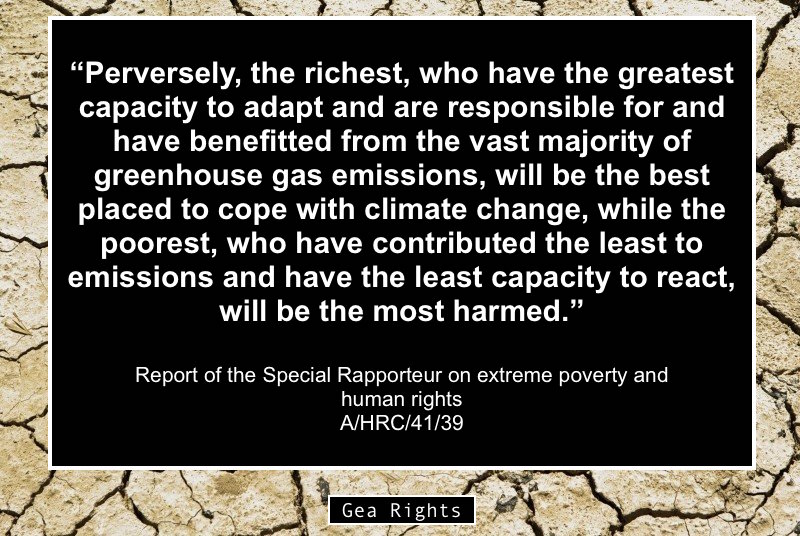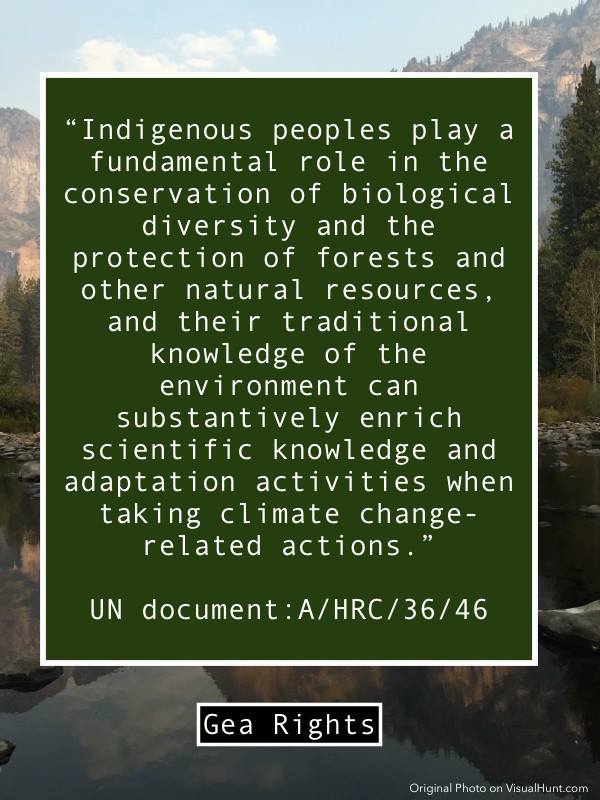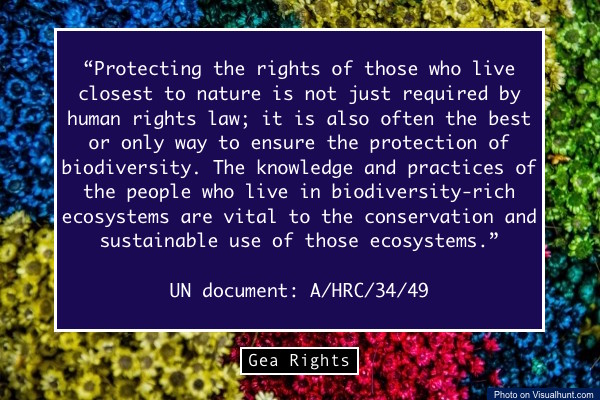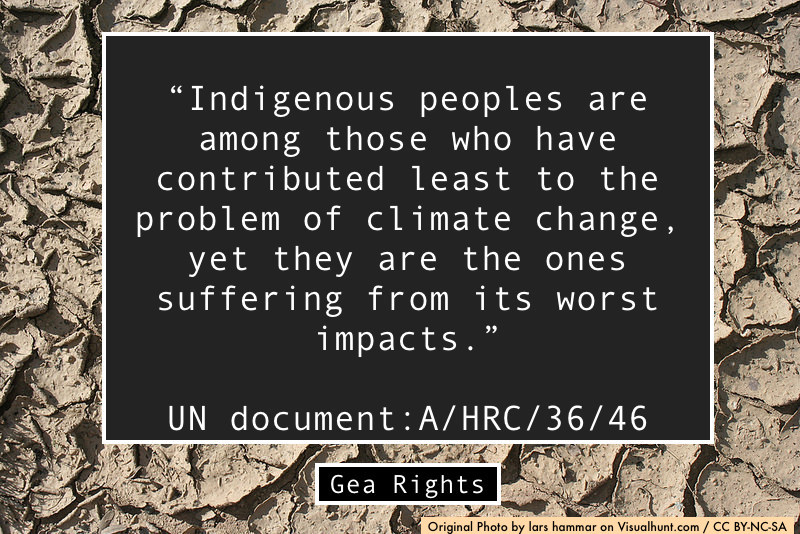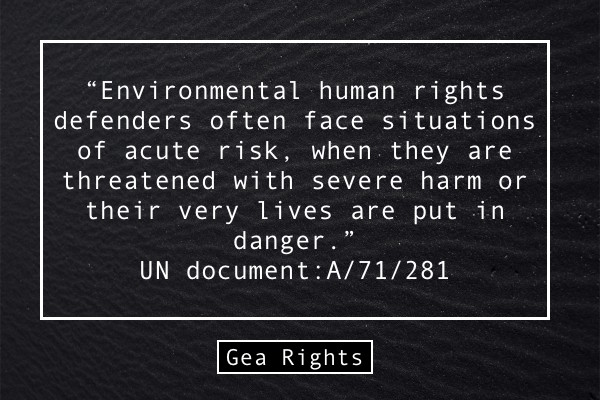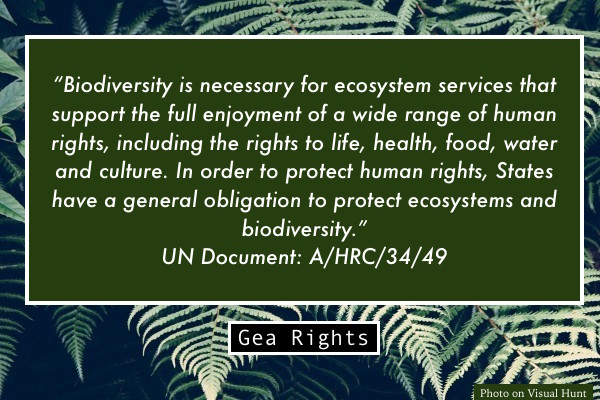Those whom we call Indigenous Peoples, have not always been “Indigenous Peoples”.
The term “Indigenous” in fact refers “to the living descendants of preinvasion inhabitants of lands now dominated by others”.[1] Before those invasions, Indigenous people were simply people inhabiting a certain territory, with their history, social organization, culture and spirituality.
In his work “Imperialism, Sovereignty, and the Making of International Law”, Anghie deepens the relationship between colonialism and International Law, focusing in particular on the “civilizing mission” of Europeans animated by the cultural difference, and its enduring effects on modern International Law.[2] The dichotomy between a universal, civilized culture, and a particular, uncivilized “other” legitimized the conquests and transformation of the latter.[3] The author argues that the encounter between Europeans and non-Europeans, the “Indians” of America, has shaped International Law, and was characterized by a relationship of domination in which the values and costumes of Europeans were deemed, from the very beginning, as universal, civilized and therefore civilizing.[4] Francisco de Vitoria, gave a pivotal contribution in the development of the doctrines to be applied to this relationship.[5] He considered Native Americans as reasoning humans, yet uneducated to universal rules established by natural reason, the jus gentium.[6] Being reasoning beings, then, they were bound to these norms, whose violation justified the “just” war and sanctions perpetrated by the Spanish.[7] The jus gentium also entitled Spanish to travel and sojourn in the newly discovered lands, and to trade with the “Indians”, in a system of commerce in which the Natives seemed to participate as equals, but from which, in reality, they could not escape.[8] The Natives’ primitive condition excluded them “from the realm of sovereignty” therefore any war or conflict arising between the invaders and the invaded was ultimately a conflict between a sovereign State and non-sovereign Natives.[9] Vitoria, in fact, considered Natives “unfit to found or administer a lawful State up to the standard required by human and civil claims”[10] and stated that “It might, therefore, be maintained that in their own interests the sovereigns of Spain might undertake the administration of their country […]”.[11] According to Anghie, Vitoria replaced the “universal system of divine law administered by the Pope” with the “universal law system of jus gentium whose rules may be ascertained by the use of reason”.[12] It is important to note, however, that the relationship with the Natives was not only marked by the presumed superiority of the European (juridical and technical) civilization , but also by a moral judgment that, as affirmed by Quidel Lincoleo, trasformed Natives into “beings full of guilt”, whose culture, cosmovision and knowledge came “directly form the devil”.[13]
In his work “Sovereigns, Quasi Sovereigns and Africans: Race and Self-Determination in International Law”, Grovogui writes about the role played by Canon Law in the determination of the relationship between Christians and non-Christians.[14] During the early Middle Age, Christians and non-Christians “lived in competing but not antagonistic self-centered universes, each guided by a belief in the self as the center of the entire universe”, in a relationship “characterized by the absence of hegemonic power(s)”.[15] With the 1302 papal bull Unam Sanctam, Boniface VIII proclaimed that all humans, in the interest of their salvation, were subjected to the Roman pontiff.[16] After 1492, Alexander VI’s papal bulls ordered the Natives to be converted to Christianism and the new lands to be shared between Spain and Portugal, the maritime powers of that time.[17] As a result, salvation was often intended “in secular terms involving domination and exploitation”.[18] As stated by Grovogui “the conversion of the unfaithful, even through the use of force, was the moral obligation of the believer to the nonbeliever”.[19] Therefore, we can see how the relationship between the Europeans and the Natives was, from the very beginning, charged by moral assumptions. The cultures and cosmovision of Natives were not simply intended as a set of habits or customs, but as a sin against God. Domination was not only meant to civilize the Indigenous but to save them from themselves, as an act of charity. Christian Europeans, then, not only affirmed the superiority of their civilization, but also their moral superiority. It is important to note, however, that the Indigenous knowledge was actually used and assimilated by the European powers. In order to survive in the “New World”, European colonists had to learn the skills, knowledge and technology of Indigenous peoples. However, the integration of these practices soon led to “forget” the sources of these innovations, as a result of the appropriation.[21]
A century later, Grotius recognized the right to enter treaties as a natural right of all people and endorsed the concept of a just war.[22] Hired by the Dutch East India Company to justify the capture of a Portuguese galleon, in his work Mare Liberum Grotius rejected the Spanish and Portuguese monopoly of trade in Asia, denied the power of the Pope over “infidel nations”, and affirmed the natural right of Europeans to free trade and navigation.[23] In the meantime, Grotius considered Natives to have limited sovereignty and claims over their lands, and asserted the right of Christians to make war against those who denied them the possibility of trade.[24]
The Treaty of Wesphalia in 1648 marked the emergence of the modern international system and of the naturalist jurisprudence.[25] The emerging law of nations was expressed in the treaties of Vattel “The Law of Nations, or The Principles of Natural Law”.[26] The system designed by Vattel in his work was characterized by the dichotomy individual/state, the first enjoying individual rights, the latter sovereignty.[27] In Vattel’s work, the words Nation and State were used in an interchangeable way, showing the coincidence of the concepts of nationhood and statehood.[28] He articulated the doctrine of State sovereignty, which affirmed that Nations (or States) had to be considered as “free, independent and equal”.[29]
According to Anaya, for Indigenous Peoples to be considered as actors in the international stage, they should have been regarded as States or nations.[30] Only the enjoyment of statehood or nationhood would have allowed them to have rights and duties on an international level. Otherwise, their status in this context would have been that of individuals.[31] The State-type of organization was not common among Indigenous Peoples, who were often organized in tribal groups or decentralized structures.[32] Vattel, however, made a difference between the “empires of Peru and Mexico”, that he considered civilized, and the North American peoples, who did not inhabit their lands but rather “roamed over them”, denoting a favor for a political structure that resembled the European ones.[33] He considered agriculture as an activity that, unlike gathering or hunting, gave some rights on the land, a distinction later developed by other scholars to deny Indigenous peoples their status as nations under International Law.[34]
The positivist assumption developed later on a States’ consent-based International Law, and on the exclusion from its realm of non-civilized peoples, marked the end of any possibility for Indigenous Peoples to participate in its development, in the shaping of its concepts, or to claim rights under its scope.[35] Lorimer is considered as the initiator of the concept of “civilization” in International Law.[36] He divided humanity into three groups, each one representing a certain degree of development: civilized, barbarian (semi-civilized) and the savage (uncivilized).[37] While the civilized were considered full subjects of International Law, the semi-civilized only had a limited international personality while the last group, the savages, belonged to Nature and did not enjoy any recognition.[38]
The acknowledgment regarding the level of civilization of non-European people, however, was often the result of an ad-hoc, random, discretionary judgment, mostly motivated by the economic interests and the advantages that each European State could obtain.[39]
To be part of the international community, it was necessary for States to conform to certain rules which were, essentially, the European standards of civilization.[40] The establishment of European sovereignty over the colonized territories solved the problem of international personality of the non-European entities: any relationship between European States and colonized States, in fact, took place between European powers.[41] The States who were not subjected to colonization strictu sensu, instead, had to reform their domestic systems in order to reflect the political, legal and economic standards required by the European powers.[42] The practice of the unequal treaties characterized the relationship with these States, considered “semi civilized”, and introduced, among others, the extraterritoriality clauses excluding Western subjects from those States’ territorial jurisdiction.[43]
As stated by Grovogui:
“The historic imposition of Western idioms of property, possession, and ownership on non-European cultures in discussions of land use, sovereignty, and political authority was intended to cause the physical collapse of the conquered cultures. It was also hoped that it would cause the discursive disappearance of local sign systems, including domestic laws, and their referents”.[44]
The Berlin Conference of 1884 marked the definitive exclusion from the realm of “civilization” of non-Western values and identities, and the “universality” of the newly global International Law came as a direct result of the “suppression of the non-Western world”.[45]
As we have seen, the encounter between the European and the Indigenous civilizations was generally characterized by a presumption of superiority of the first at the expense of the second.[46] Considered immoral and uncivilized, the Indigenous knowledge, spirituality and cosmovision have been condemned to centuries of invisibility in International Law, also as a result of the positivist jurisprudence that made States the only (and later main) actors of International Law. In order to be part of the international community, States had to comply with the standards of civilization requested by the European powers, which included political and legal structures that were not common among Indigenous peoples. As a consequence, International Environmental Law was formed on the basis of a West-centered, anthropocentric worldview, that ignored the Earth-centered cosmovision of Indigenous peoples.
The slow emergence of Indigenous peoples as political actors on the domestic level, resulting in the inclusion of their worldviews in the Constitutions and ordinary laws of several States, has shed a light on their culture also on an international level. It is apparent, in fact, how the commencement of the Harmony with Nature programme in 2009 and the establishment of the day of Mother Earth was the result of the impulse of the first Indigenous president of Bolivia, Evo Morales. The particular momentum that took place in Ecuador and Bolivia in 2008 and 2009, when these States embraced their Indigenous heritage and set it as guiding principle in their new Constitutions, represented a pivotal moment for the affirmation of those concepts within the United Nations.
Footnoes
[1] S. James Anaya, Indigenous Peoples in International Law (Oxford University Press, 2000), p. 4
[2] Antony Anghie, Imperialism, Sovereignty and the Making of International Law (Cambridge University Press, 2012), p. 3
[3] Ibid. p. 4
[4] Ibid.
[5] Ibid. p. 15
[6] Ibid. p. 20
[7] Ibid.
[8] Ibid. p. 21
[9] Ibid. p. 30
[10] Francisco de Vitoria in James Anaya, Indigenous Peoples in International Law, op. cit., p. 11
[11] Ibid.
[12] Antony Anghie, Imperialism, Sovereignty and the Making of International Law, op. cit., p. 20
[13] See Indigenous Peoples as Earth defenders and legal innovators
[14] Siba N’Zatioula Grovogui, Sovereigns, Quasi Sovereigns and Africans: Race and Self-Determination in International Law (University of Minnesota Press, 1996), p. 16 ff.
[15] Ibid. pp. 18- 19
[16] Ibid. p. 19
[17] Ibid. p. 20
[18] Ibid. p. 22
[19] Ibid. p. 23
[20] See ibid. infra p. 26
[21] Linda Clarkson, Vern Morrissette and Gabriel Régallet, Our Responsibility to The Seventh Generation, op. cit., pp.40-41
[22] James Anaya, Indigenous Peoples in International Law, op. cit., p. 11
[23] Siba N’Zatioula Grovogui, Sovereigns, Quasi Sovereigns and Africans: Race and Self-Determination in International Law, op. cit., p. 16 ff.
[23] Ibid. p 58
[24] James Anaya, Indigenous Peoples in International Law, op. cit., p. 12
[25] Ibid. p. 13
[26] Ibid.
[27] Ibid. p. 14
[28] Ibid.
[29] Ibid. p. 15
[30]James Anaya, Indigenous Peoples in International Law, op. cit., p. 12
[31] Ibid.
[32] Ibid.
[33] Ibid. p. 16
[34] Ibid.
[35] Ibid. p. 19-20
[36] Ntina Zouvala, “Civilisation” in Jean d’Aspremont and Sahib Singh (eds), Concepts for International Law – Contributions to Disciplinary Thought (Edward Elgar Publishing, 2019), p. 86
[37] Ibid.
[38] Ibid.
[39] Antony Anghie, Imperialism, Sovereignty and the Making of International Law, op. cit., p. 81
[40] Ibid. p. 84
[41] Ibid. p. 82
[42] Ibid. p. 86
[43] Ntina Zouvala, “Civilisation”, op. cit., p. 90
[44] Siba N’Zatioula Grovogui, Sovereings, Quasi Sovereigns and Africans: Race and Self-Determination in International Law, op. cit., p. 64
[45] James Crawford in Antony Anghie, Imperialism, Sovereingty and the Making of International Law, op. cit., pp. XI-XII
[46] See Juan José Guzmán, “Decolonizing Law and expanding Human Rights: Indigenous Conceptions and the Rights of Nature in Ecuador”, in Deusto Journal of Human Rights, No. 4 (2019), p. 63
